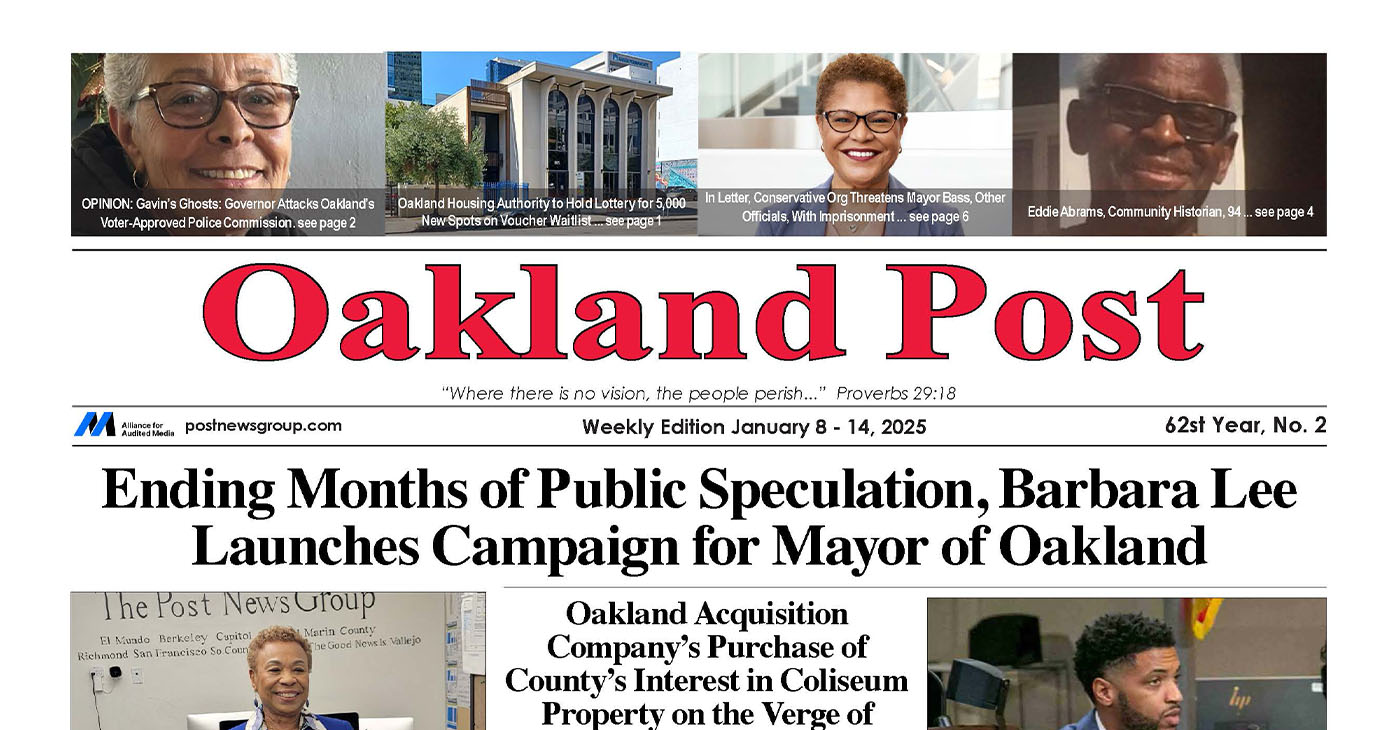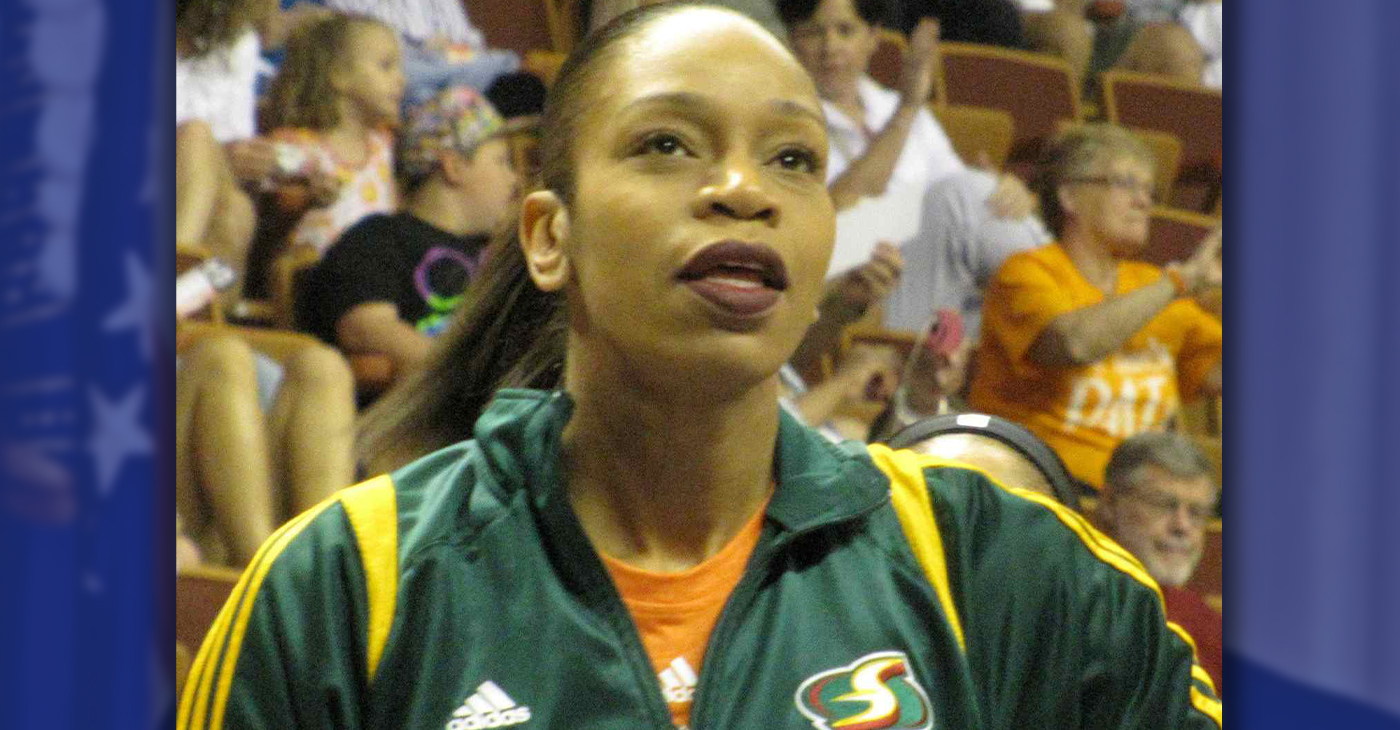Entertainment
CBS’ ‘The Briefcase’ Takes the Immorality of TV to a New Low
Leonard Pitts, Jr., THE BALTIMORE SUN
(The Baltimore Sun) — Recently, I watched the first episode of “The Briefcase,” CBS’ new “reality” show. I found myself vaguely ashamed for doing so. I kept reminding myself that I had to watch it in order to write about it.
Myself wasn’t buying it. Myself wanted a shower.
It will probably not shock you to learn that your humble correspondent has no love for so-called reality television. Somehow, on the road from “Candid Camera” to “An American Family” to various real housewives of various real American cities, the once novel and seemingly harmless idea of focusing television cameras on the lives of ordinary people curdled into a species of “entertainment” so invasive that the camera might as well be a proctological device.
In that sense, you could argue there is nothing new, nor even particularly noteworthy, about “The Briefcase,” a summer series that premiered last week. Its premise is that a struggling family is given a briefcase full of cash — $101,000 — with the stipulation that they may choose to keep all of the money, keep some and give the rest to a second down-on-its luck family or keep none of it and give the entire fortune to that other family.
###
Activism
Oakland Post: Week of January 8 – 14, 2025
The printed Weekly Edition of the Oakland Post: Week of January 8 – 14, 2025

To enlarge your view of this issue, use the slider, magnifying glass icon or full page icon in the lower right corner of the browser window.
Activism
2024 in Review: 7 Questions for California Black Chamber of Commerce CEO Jay King
Jay King is also a member of the popular 1980s R&B group Club Nouveau. In his role as an artist and activist, he has stood up for issues affecting underrepresented Californians for over three decades. As the President of the CBCC, King says he is determined to put his mark on developing and expanding the capacity of African American businessmen and women.

By Edward Henderson, California Black Media
Grammy Award-winning singer and record label executive, Jay King, was elected CEO/President of the California Black Chamber of Commerce (CBCC) in June of 2019.
The CBCC is the largest African American non-profit business organization, representing thousands of small and emerging businesses, affiliates, and chambers of commerce throughout California.
King is also a member of the popular 1980s R&B group Club Nouveau. In his role as an artist and activist, he has stood up for issues affecting underrepresented Californians for over three decades.
As the President of the CBCC, King says he is determined to put his mark on developing and expanding the capacity of African American businessmen and women.
California Black Media (CBM) spoke with King recently. He reflected on the Chamber’s accomplishments, disappointments, lessons learned this year, and goals moving forward.
Looking back at 2024, what stands out as your most important achievement and why?
Making the voices of micro and mini-micro businesses loud, forcing policymakers and other decision makers across the state to pay attention to them. With legislation in place now — AB 1574 and AB 2019 – that mandates that the state and agencies affiliated with the state extend opportunities to micro and mini business owners and give them a chance to participate in government contracting in a real way.
How did your leadership and investments contribute to improving the lives of Black Californians?
I really want to contribute to the world and the state of Black businesses because of the systemic inequities in the past.
Small business, micro businesses and mini businesses are too often overlooked.
I think it would be egotistical to believe that I make any significant impact on my own. Whether it’s the Asian Chamber, Hispanic Chamber and other organizations that are fighting the same fight. I think it’s a collective, so I’m proud to be part of the collective.
What frustrated you the most over the last year?
We say we want to give access to capital to small businesses, yet we continue to create barriers that deny them access.
What inspired you the most over the last year?
Watching some of the small business owners that we worked with — these micro businesses — and seeing the potential and the power that is in front of us.
What is one lesson you learned in 2024 that will inform your decision-making next year?
We have to fight for Black business owners, but they also have to be prepared; because if they’re not, it affects us all down the line.
In one word, what is the biggest challenge Black Californians face?
Self-belief. I think we have been conditioned on victimization and victimhood. We think that if we don’t get the help we need that we will falter.
What is the goal you want to achieve most in 2025?
I want to change the trajectory of micro and mini business owners.
Bay Area
Tina Thompson: Champion, Legend, and Pioneer of Women’s Basketball
Known for her signature red lipstick, Thompson displayed confidence and style on the court, becoming an icon both for her gameplay and her individuality. Her ability to score from anywhere on the floor, combined with her defensive prowess, made her one of the league’s most formidable players.

By Tamara Shiloh
The establishment of the Women’s National Basketball Association (WNBA) in 1996 was a turning point for women’s sports, creating a professional platform for female basketball players to showcase their skills at the highest level. Among the trailblazers who helped launch the league, Tina Thompson stands out as the first African American woman drafted into the WNBA.
Tina Thompson was born on February 10, 1975, in Los Angeles, California. Raised in a basketball-loving household, she quickly developed a passion for the game. Thompson improved her skills on the playgrounds of South Central Los Angeles, often playing against boys, which toughened her game and fueled her competitive edge.
She attended the University of Southern California (USC), where she became a standout player for the Trojans. Known for her versatility, scoring ability, and relentless work ethic, she earned All-Pac-10 honors multiple times and cemented her reputation as one of the top collegiate players in the nation.
When the WNBA held its first-ever draft on April 28, 1997, Tina Thompson made history as the league’s first African American player to be drafted. Selected as the first overall pick by the Houston Comets, she joined a team that would go on to dominate the early years of the WNBA.
Tina’s selection was a historic moment, symbolizing the league’s commitment to showcasing diverse talent. As a Black woman in a pioneering role, Thompson carried the hopes of aspiring African American female athletes who dreamed of playing professional basketball.
Tina wasted no time making an impact in the WNBA. As a key member of the Houston Comets alongside legends Cynthia Cooper and Sheryl Swoopes, she helped lead the team to an unprecedented four consecutive championships from 1997 to 2000. The Comets’ dynasty became the gold standard for excellence in the league’s early years.
Known for her signature red lipstick, Thompson displayed confidence and style on the court, becoming an icon both for her gameplay and her individuality. Her ability to score from anywhere on the floor, combined with her defensive prowess, made her one of the league’s most formidable players.
Over a career spanning 17 seasons, Tina established herself as one of the WNBA’s all-time greats. She retired as the league’s leading scorer, a record she held until it was broken by Diana Taurasi. She was a nine-time WNBA All-Star and was named to multiple All-WNBA teams, cementing her status as one of the sport’s legends.
In 2018, Thompson’s contributions to basketball were recognized with her induction into the Naismith Memorial Basketball Hall of Fame. The honor underscored her influence not just as a player, but as a trailblazer for African American women in sports.
After retiring from professional basketball, she transitioned into coaching, using her experience and knowledge to mentor young athletes. She has served as a head coach at the collegiate level, inspiring the next generation of players to pursue excellence both on and off the court.
As a role model and advocate, Thompson has consistently emphasized the importance of education, empowerment, and self-belief. Her story resonates with countless young women who see in her the embodiment of perseverance and success.
Tina Thompson is presently in her third season as an assistant coach at the University of Texas at Austin.
-

 Activism3 weeks ago
Activism3 weeks agoBooks for Ghana
-

 Arts and Culture4 weeks ago
Arts and Culture4 weeks agoPromise Marks Performs Songs of Etta James in One-Woman Show, “A Sunday Kind of Love” at the Black Repertory Theater in Berkeley
-

 Bay Area3 weeks ago
Bay Area3 weeks agoGlydways Breaking Ground on 14-Acre Demonstration Facility at Hilltop Mall
-

 Activism4 weeks ago
Activism4 weeks ago‘Donald Trump Is Not a God:’ Rep. Bennie Thompson Blasts Trump’s Call to Jail Him
-

 Activism3 weeks ago
Activism3 weeks agoLiving His Legacy: The Late Oscar Wright’s “Village” Vows to Inherit Activist’s Commitment to Education
-

 Alameda County3 weeks ago
Alameda County3 weeks agoAC Transit Holiday Bus Offering Free Rides Since 1963
-

 #NNPA BlackPress4 weeks ago
#NNPA BlackPress4 weeks agoCalifornia, Districts Try to Recruit and Retain Black Teachers; Advocates Say More Should Be Done
-

 Arts and Culture3 weeks ago
Arts and Culture3 weeks agoIn ‘Affrilachia: Testimonies,’ Puts Blacks in Appalacia on the Map











































